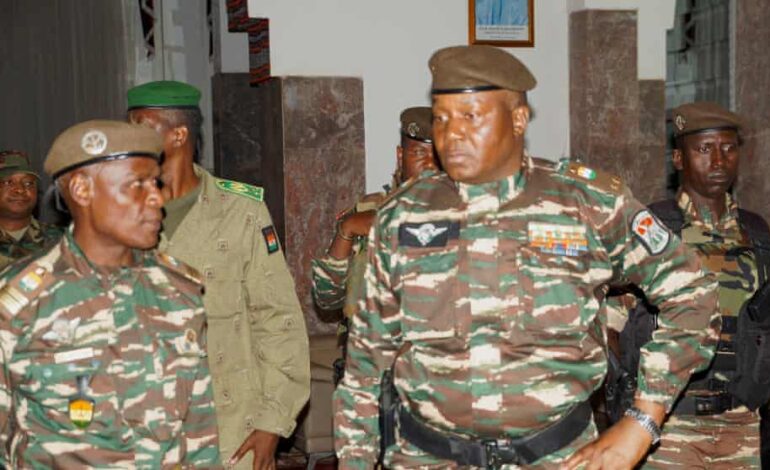
Faith Nyasuguta
On Thursday, U.S. President Joe Biden called for the immediate release of Nigerien President Mohamed Bazoum, who was toppled last week in a military coup.
In a statement, Biden said that Niger is “facing a grave challenge to its democracy.”
“The Nigerien people have the right to choose their leaders. They have expressed their will through free and fair elections—and that must be respected,” he noted.
The Economic Community of West African States (ECOWAS) defense chiefs were due to complete a second day of talks in neighboring Nigeria about the situation.
Hours after the coup, ECOWAS enacted sanctions against the coup leaders and set a Sunday deadline for Bazoum to be reinstated with the potential of using military force if he is not.
The man that declared himself the new head of state, General Abdourahamane Tchiani, said in a televised address Wednesday that the junta “rejects these sanctions altogether and refuses to give into any threats, wherever they come from. We refuse any interference in the internal affairs of Niger.”
Abdel-Fatau Musah, ECOWAS commissioner for political affairs, peace and security, told reporters Wednesday in Abuja that the military option was a “last resort” for the West African bloc. But Musah said preparations had to be made for that possibility.
“There is a need to demonstrate that we cannot only bark but can bite,” he said.
On Wednesday, ECOWAS also sent a delegation to Niger’s capital, Niamey, for talks with junta members.
On the same day, the United States disclosed that it was ordering the “temporary departure of non-emergency U.S. government personnel and eligible family members from the U.S. Embassy in Niamey.” It also raised its travel advisory to Level 4 – Do Not Travel – for Niger.
France’s military and foreign ministry continued Wednesday to evacuate people from Niger. The foreign ministry said about 1,000 people left Niger on four flights. The evacuees included French nationals along with others from Niger, Portugal, Belgium, Ethiopia, Lebanon, Germany, Canada, India, Austria and the United States.
Italy also carried out its own evacuation flight.
On Thursday, Britain said it was temporarily reducing its embassy staff in Naimey due to security concerns.
On July 26, military leaders put Bazoum under house arrest on and named Tchiani, commander of the presidential guard, as their new leader on Monday.
Coup leaders said they were acting in response to what they described as a worsening security situation and the government’s lack of action against jihadis.
The coup has been condemned by Western countries, including the U.S. which says it stands with Nigeriens, ECOWAS and the African Union as it continues to work to roll back the coup, U.S. officials say.
U.S. Secretary of State Antony Blinken spoke by telephone Wednesday with Bazoum to discuss the situation in Niger, the State Department said.
Spokesperson Matthew Miller said in a statement about the call that the United States “remains committed to the restoration of the democratically-elected government” in Niger.
“We reiterate that the safety and security of President Bazoum and his family are paramount,” Miller said. “The United States is dedicated to finding a peaceful resolution that ensures that Niger remains a strong partner in security and development in the region.”
RELATED:




